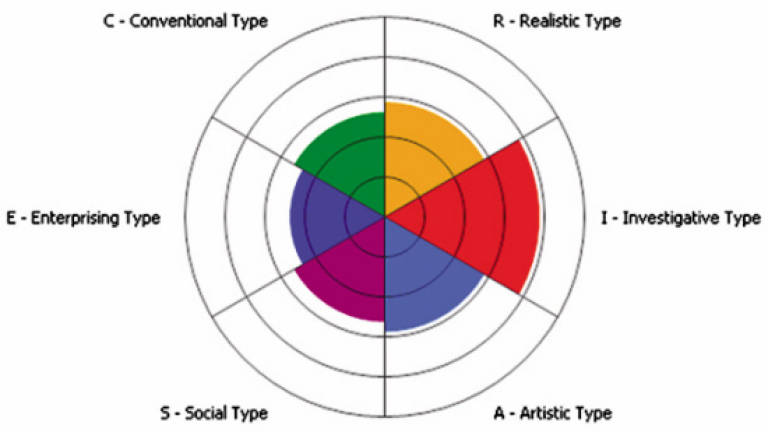Put your best foot forward


THINK of career profiling and personality tests as a gigantic filter, with the job you’ve been waiting for at the very bottom like a rich, aromatic drop of coffee.
Before you get there, you will need to sieve everything through multiple layers, starting from your résumé to your job application to the actual interview, and finishing with the right ways of following up with your potential employer.
Career profiling and personality tests are additional layers that clean out the things that may not work for you, and push you towards something you are good at (and hopefully enjoy doing).
GTI Media Asia, the region’s leading graduate careers and education media company is the first in the world to build career profiling and personality testing into the registration process of its Mega Careers & Study Fair.
Job seekers are prompted to complete the tests before the fair, and will be emailed a QR code which will then be scanned at the entrance of the event halls. A sticker with the code will be issued, functioning as a passport.
All the recruiters have to do is scan the stickers with their mobile devices to receive all the information they need from the job seeker, relinquishing the boxes needed to collect hard copy CVs. It also gives job seekers more confidence because the nitty-gritty is done.
“The ultimate goal is to help match job seekers to the right jobs. Once all the information is keyed into the system, the job seeker will be matched to the vacancies the recruiters have within their organisation. Job seekers just have to build that ever-important human connection with the recruiter at the fair,” said Jaideep Patel, Publisher at GTI Media.
“This is how we are taking steps to increase employability in Malaysia. In most cases, job seekers don’t really know what they qualify for; they feel trapped by their degrees. If one has an accounting degree, he or she isn’t forced to be an accountant. There are many more jobs that require similar skills, like being a business writer, for example,” he added.
Job seekers are made to go through two tests. The first is a version of the Myers-Briggs Type Indicator (MBTI) which tells four aspects of an individual’s personality: whether he or she is an Extrovert or Introvert (E or I), gathers information by Sensing or iNtuition (S or N), makes decisions by Thinking or Feeling (T or F), and deals with the outer world by Judging or Perceiving (J or P).
The second test is a version of the Holland Code (RIASEC) which tells how suitable an individual is for six different career classifications: (R)ealistic, (I)nvestigative, (A)rtistic, (S)ocial, (E)nterprising or (C)onventional.
“These aspects show that not only your degree should be taken into consideration when choosing a career, but also your personality and interests,” said GTI Media writer Jacie Tan. She graduated with a law degree, but is an advocate of choosing careers based on factors that may not seem crucial at first glance.
“Social was one of my top three aspects, and I guess that was why I entered law, because I wanted to make a change and help people. I then realised law wasn’t the only way I could do it. Now, I write articles that help people find jobs. The part of me who wanted to help others never changed; I just found a different way to do it – taking into account my Investigative and Artistic aspects,” she added.
“The key reason why people fail in their first jobs is because they feel that the job or industry is not right for them,” Jaideep said. “Some job seekers need these tests to highlight to them what they are good at and what they want. Find that middle ground and you will find your dream job.”
For example, someone who has a business degree but actually loves to paint. Someone like that could be quite successful working in an art gallery or selling paintings online. Again, it is about combining what you are good at with what you love.
“A good career profiling test should reveal something about yourself that you never knew before. When I completed such tests before, it scared me a little because of how accurately it ‘read’ me. It may even reveal something painful about yourself that you don’t want to admit − that is the hallmark of good career profiling,” Jaideep said.
There is another side of career profiling that is often overlooked, he continued. “Instead of using the normal self-serving statements, job seekers can use the results of these tests to back their career objectives. For example, a job seeker looking for a sales position can support a claim to being an extrovert by citing the results of his or her career profiling. It adds substance to what you want to get across to the recruiter.”
“However, this is just information. It is not like you take these tests and magically get a job. It takes effort. When I decided I didn't want to do law, I knew I was going to put my effort in searching for opportunities in other industries. Job seekers should complete such tests and act upon the results,” Tan said.
As for the future, both Jaideep and Tan believe that career profiling has an increasingly important role to play in developing the nation’s talents.